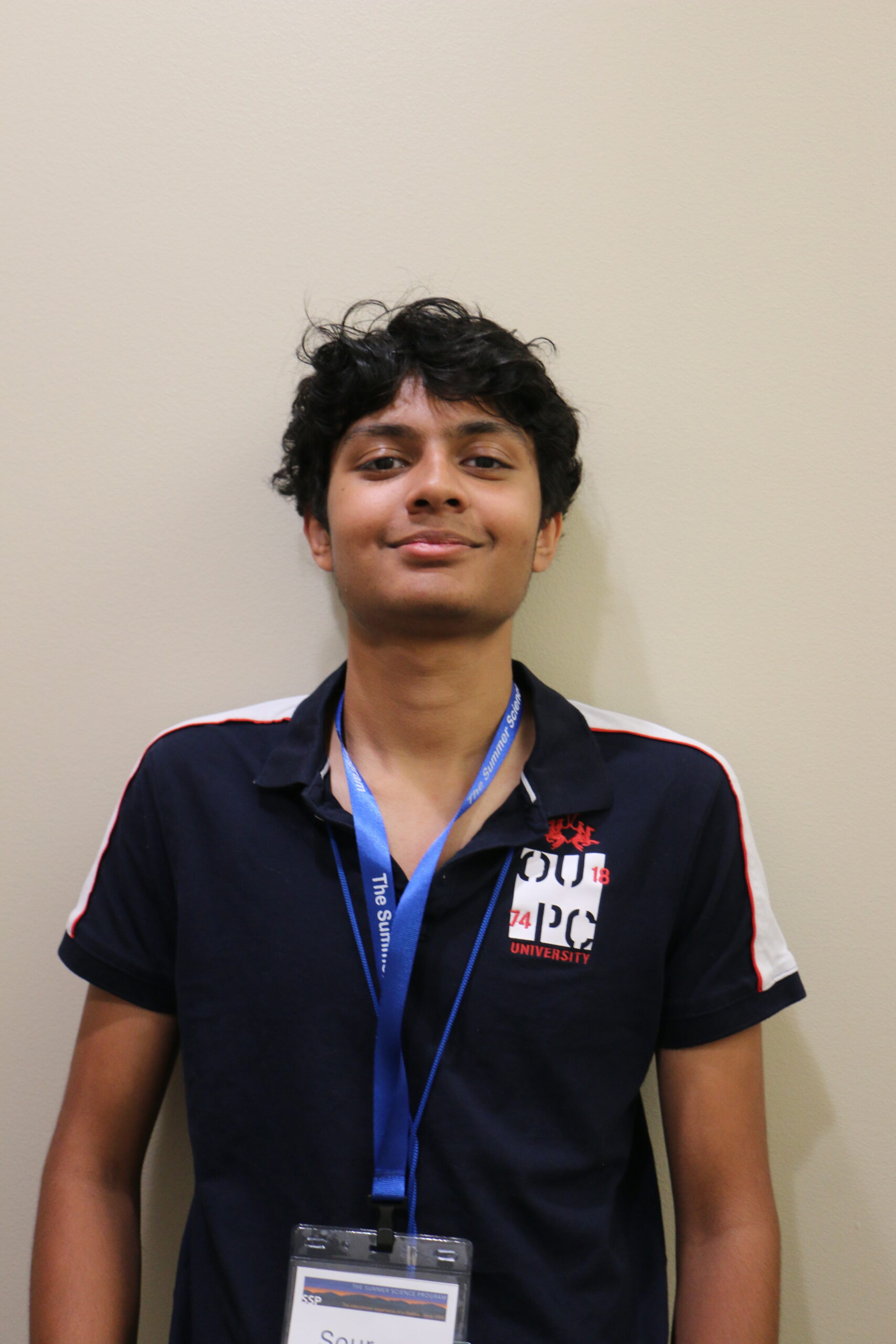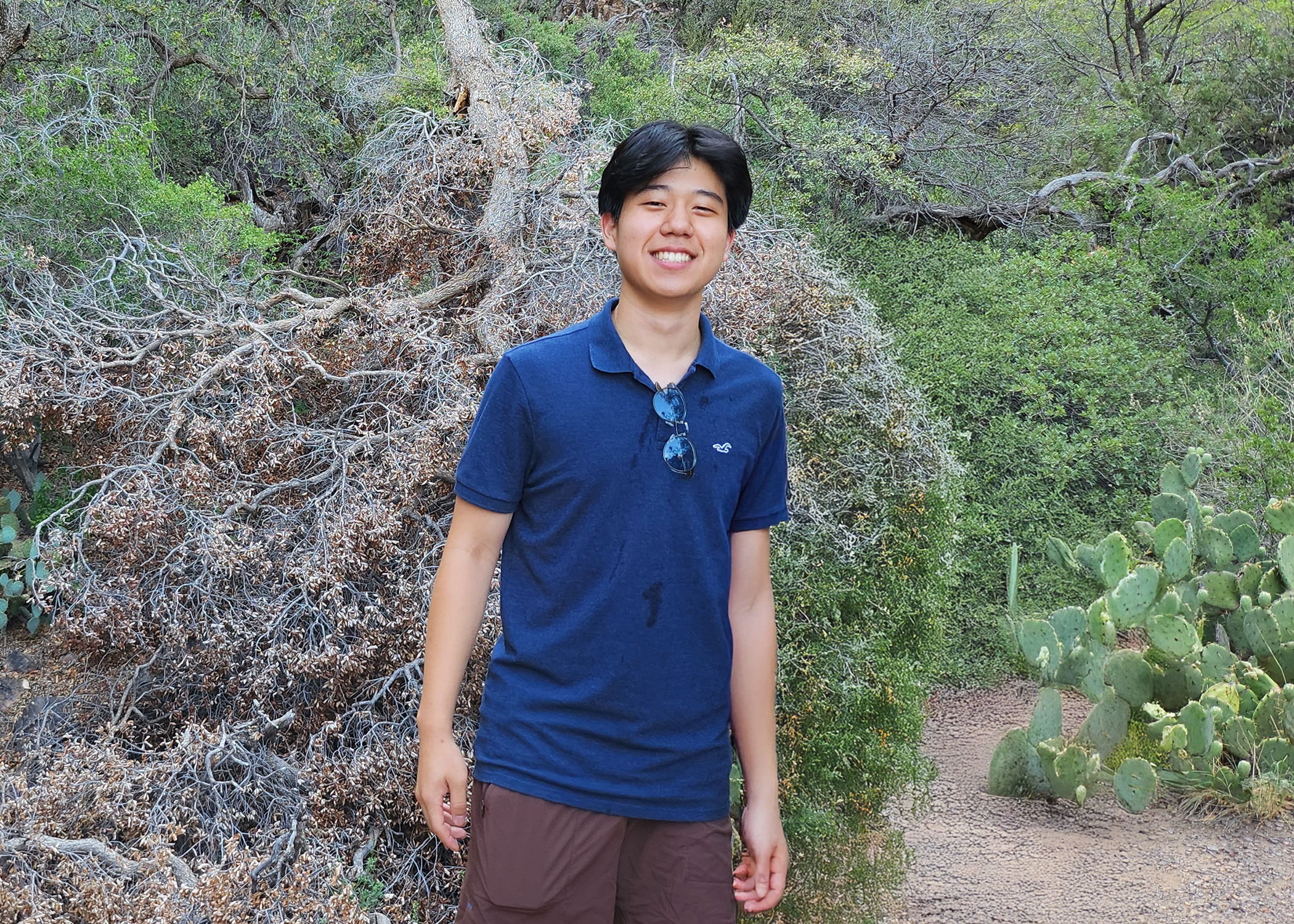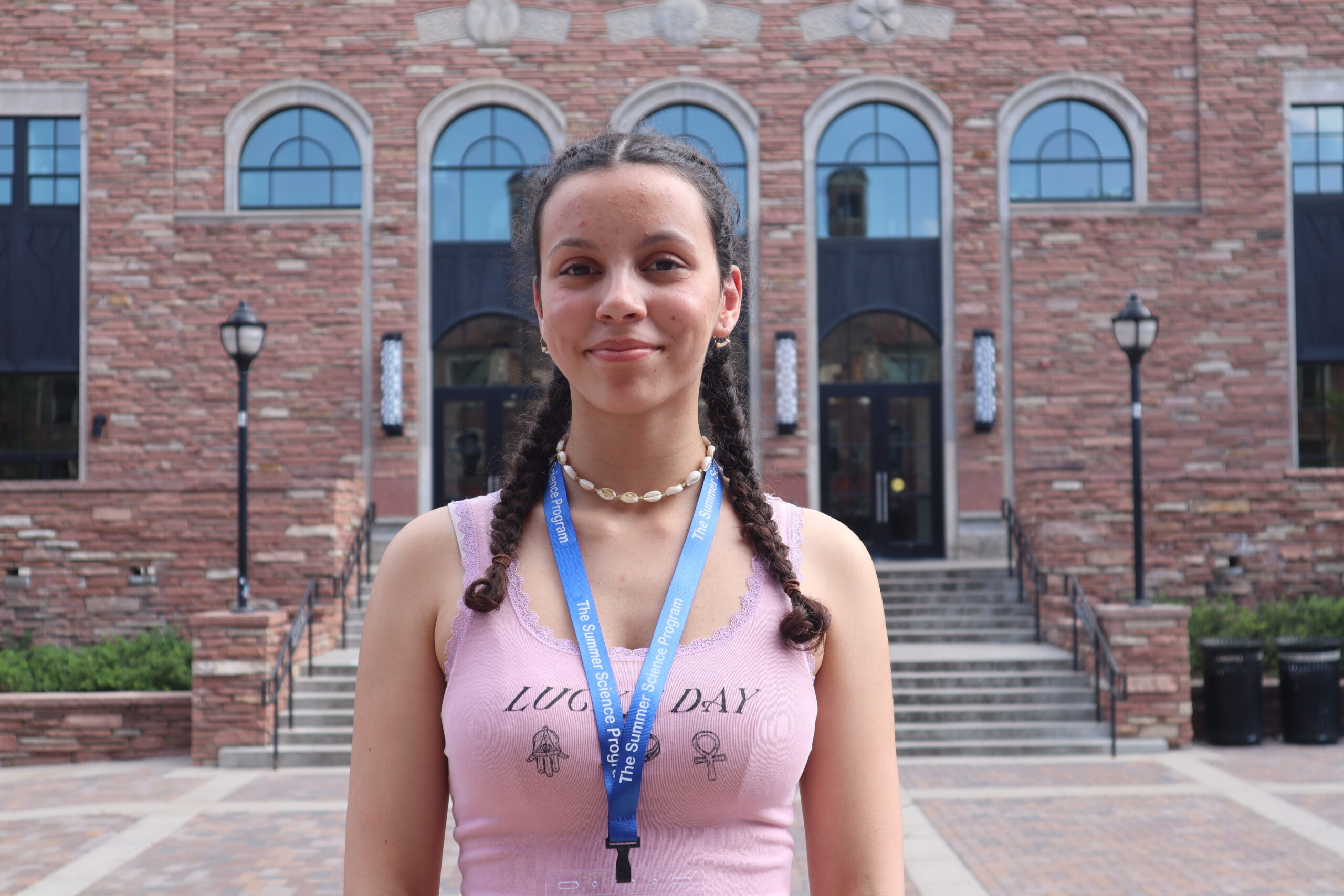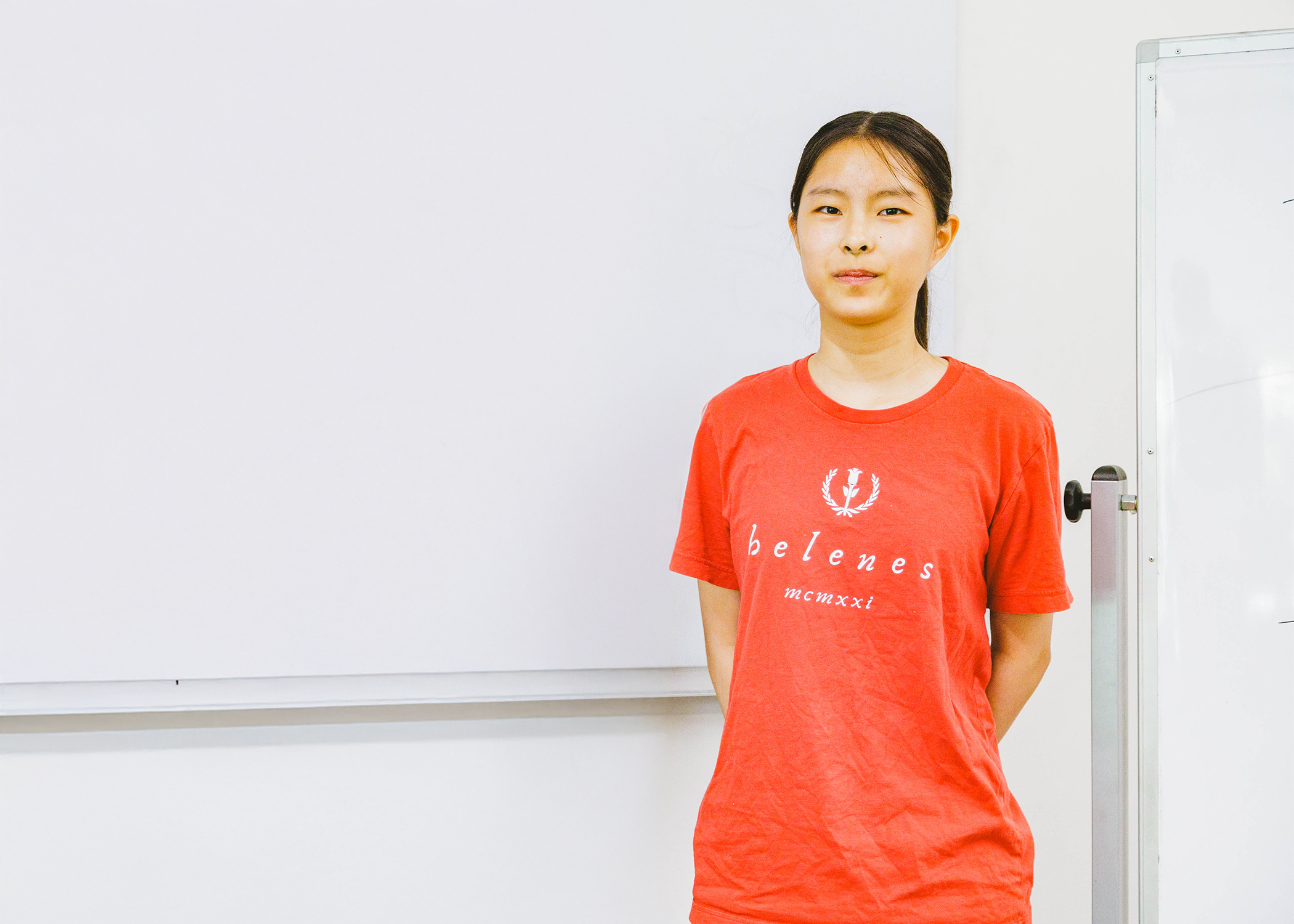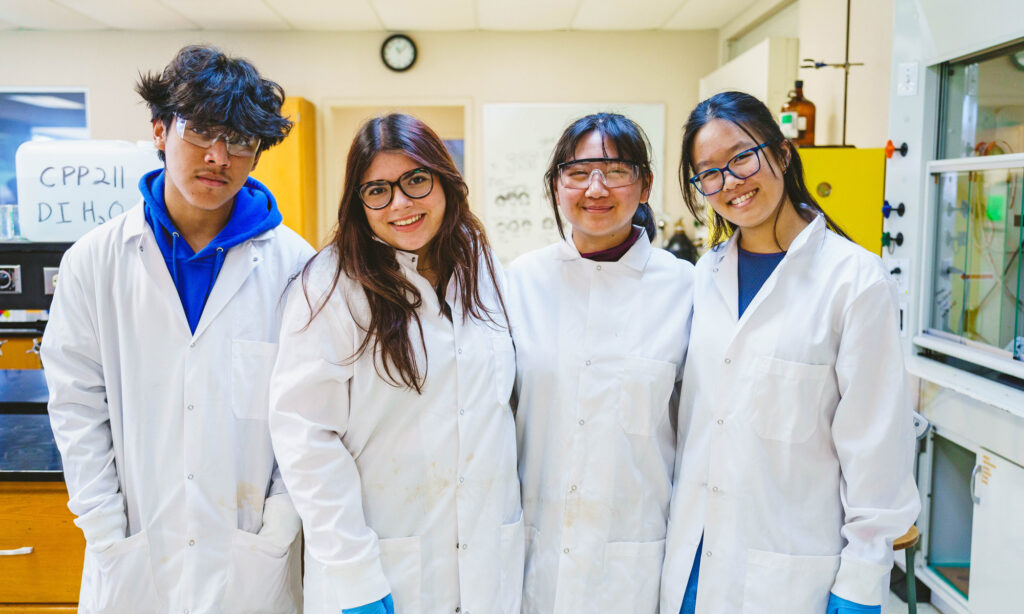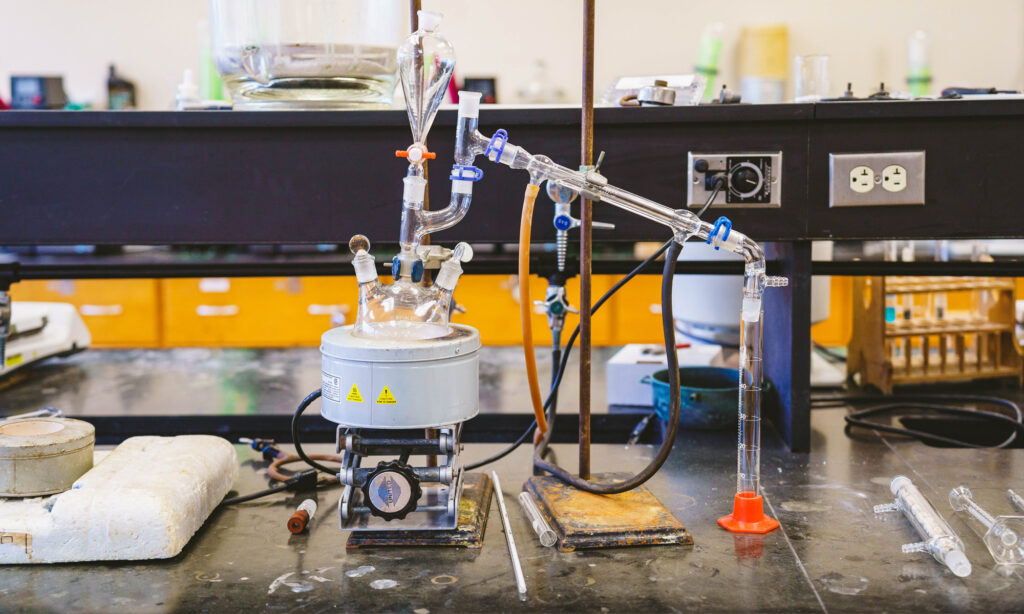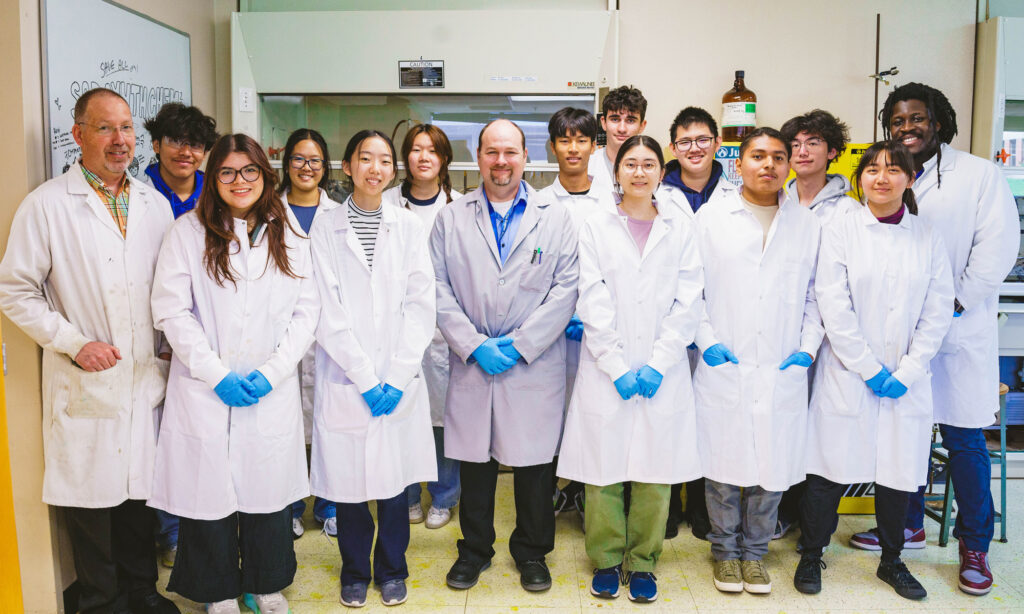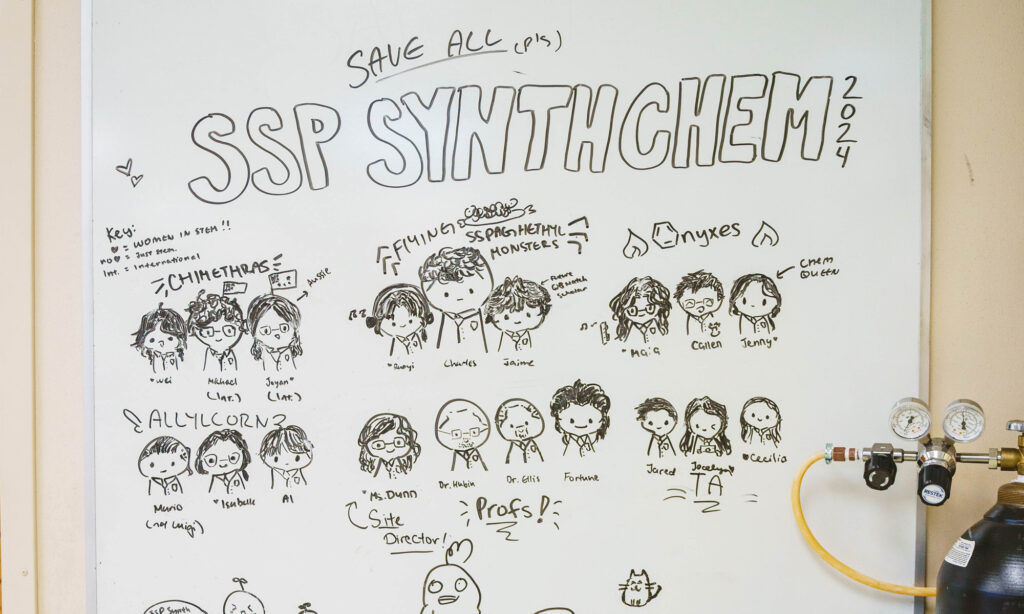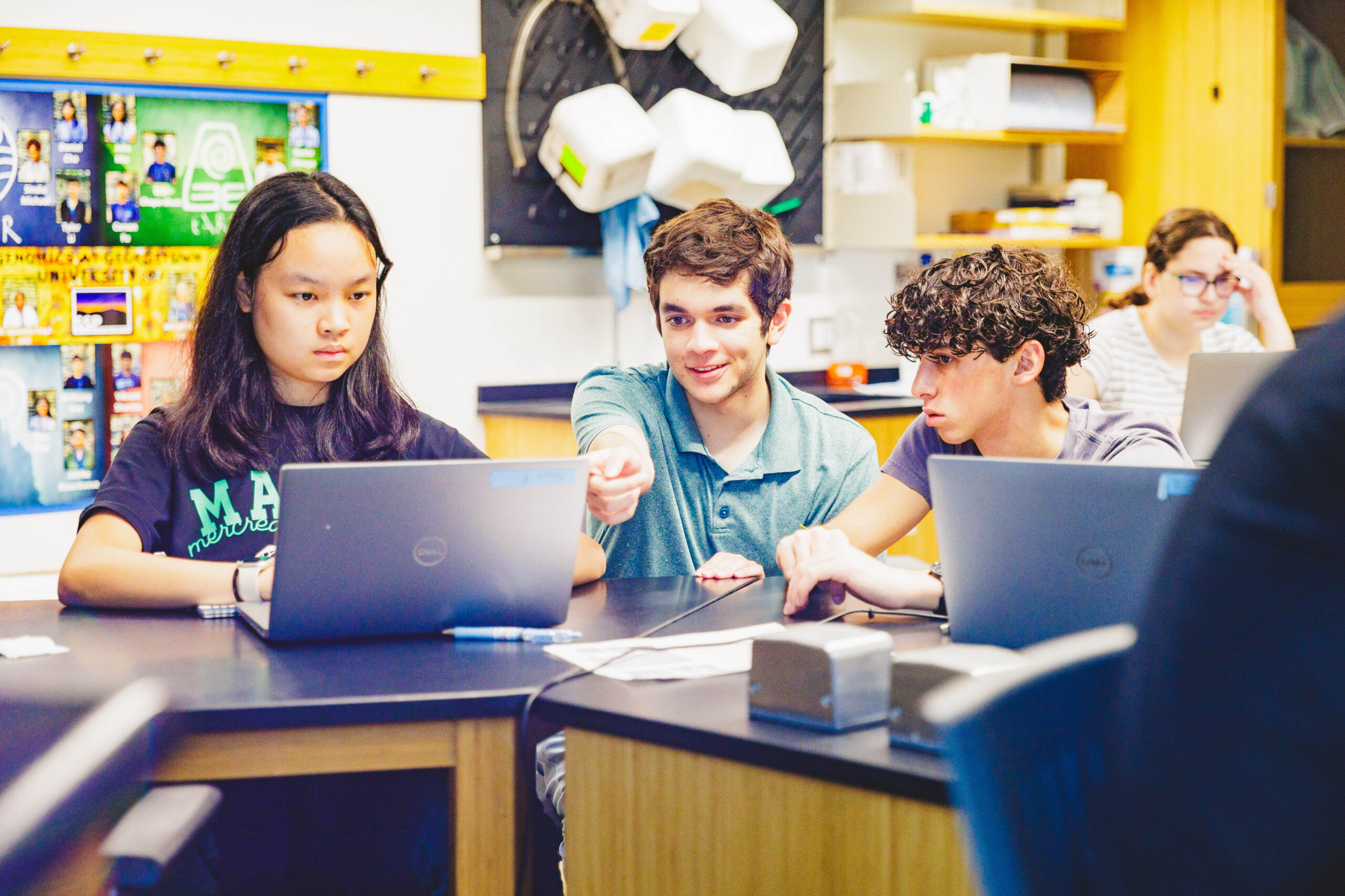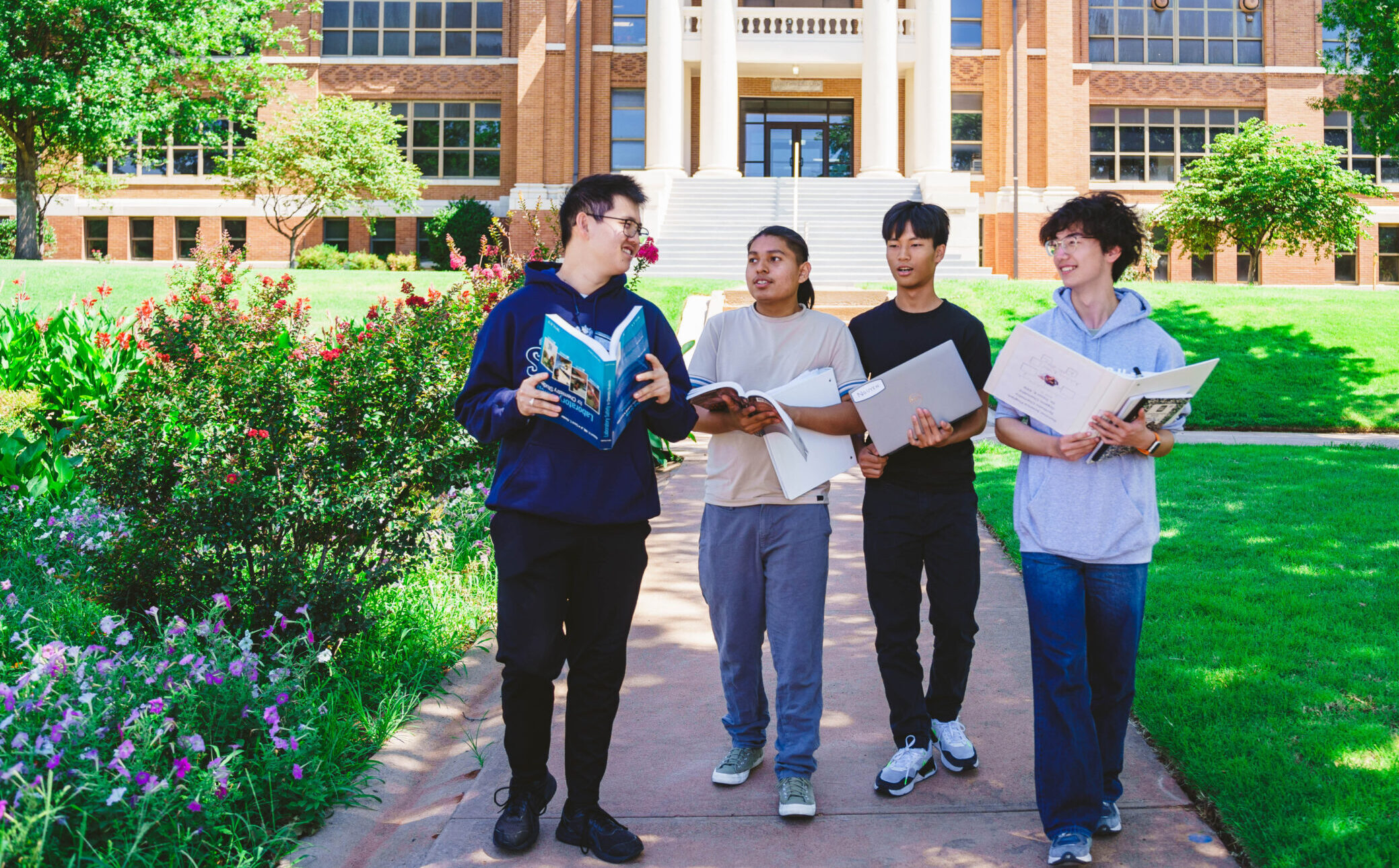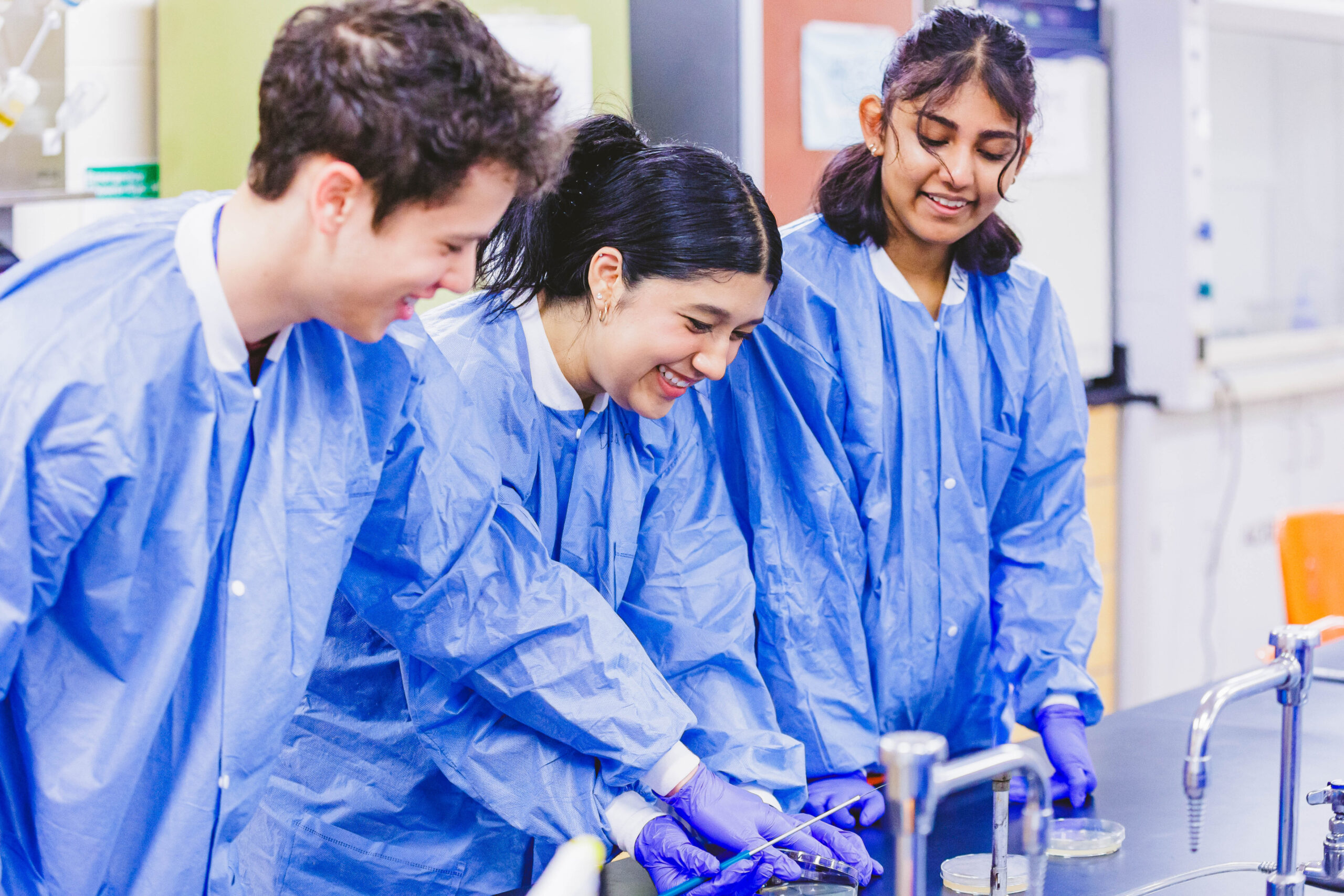
Synthetic Chemistry
Learn the fundamentals of organic and inorganic chemistry behind groundbreaking discoveries in drug design, renewable energy sources, fragrance, and more.

About the Program
Participants in the Summer Science Program in Synthetic Chemistry delve into organic and inorganic chemistry and work together to research and synthesize macrocyclic compounds. These complex compounds are known for their unique functions and characteristics, which have led to breakthroughs in fields such as medicine, engineering, and technology.
The Synthetic Chemistry program provides participants with an interactive and rigorous lab experience that trains them in one of the most complex and challenging science classes in college: organic chemistry. Participants will learn how to use organic and inorganic chemistry to create safe and effective chemical reactions that can lead to potential benefits. They will have an excellent opportunity to work with trained professionals from our faculty and meet renowned chemists to learn how to pivot, optimize, and troubleshoot research problems that can be applicable beyond the field of chemistry.
Key Dates and Deadlines
-
December 12th, 2024
Applications Open -
January 24th, 2025
Deadline for international applications -
February 21st, 2025
Deadline for domestic applications
-
Mid-April 2025
Admissions decisions released -
June 2025
Programs begin mid-late June
Is the Summer Science Program in Synthetic Chemistry Right for You?
Applications are open each winter to current high school juniors who have completed or are in the process of completing any level of high school chemistry by June for credit and a grade. Strong algebra skills are highly recommended. We do NOT require AP or advanced-level classes. Self-study does not qualify.
Applicants must be at least 15 years old but not yet 19 during program operation. Current freshmen, sophomores, and seniors are not eligible.
Program Dates & Campuses
-
Southwestern Oklahoma State University
June 8 – July 13
2025 Research Project: Creation of Novel Macrocyclic Catalysts
Catalysis is the process of speeding up a chemical reaction by introducing a catalyst. From helping us digest our food to turning raw materials into products like medicine, catalysts play a pivotal role in every aspect of chemistry.
In the “Creation of Novel Macrocyclic Catalysts” research project, you will learn how first-row transition metals (Cr, Mn, Fe, Co, Ni, Cu) on the periodic table dominate the vast realm of redox catalysis in nature, biomimicry, and homogeneous catalysis. Porphyrin derivatives and other “synthetic” macrocyclic ligand systems strongly bind these metal ions and allow the study and replication of the natural enzymatic catalysts, from which many important catalysts have emerged.
The ligand systems explored in the Synthetic Chemistry Summer Science Program are called cross-bridged tetraazamacrocycles, and they result in compounds with many desirable characteristics, such as increased metal complex stability.
The great kinetic stability of the transition metal complexes has great promise in such applications as homogeneous catalysis, where complex stability has historically been a problem. Increased stability in homogenous catalysis has important implications among a variety of applications, including drug design, renewable energy, the production of polymers, and the production of flavor and fragrance chemicals, to name a few.
A Preview of the Experience
In teams of three, you will complete bench experiments to synthesize a novel macrocyclic compound through a multi-step process called de novo synthesis and create unique metal complexes of their macrocyclic ligand analog. You will learn techniques for performing de novo synthesis and the downstream characterization of organic and inorganic molecules.
After creating a unique macrocyclic ligand analog with a metal ion to stabilize its structure, the teams will dive into a brand-new synthesis, routinely check whether each step in the multi-step synthesis reaction is successful, and eventually arrive at an untested compound that will have unknown and possibly beneficial effects. By the end of the program, each group will complete and present a professional poster and draft a manuscript summarizing their efforts.
The project starts with concepts typically covered in 200-level Organic I and Organic II college courses and ends with the topics of inorganic and coordination chemistry, which are often only taught in 300- to 400-level courses for chemistry majors.
The laboratory work requires attention to detail, safety, and unbroken focus, as even a single misstep could affect the final synthesis yield. The classroom and overall project demand an in-depth understanding of the underlying chemical reactions, a critical eye for analyzing the characterization spectra, and the ability to work closely with your peers to accomplish a goal.
Topics covered in Synthetic Chemistry include:
- Organic chemistry: multistep organic synthesis, purification by chromatography, vacuum distillation, and recrystallization, oxidation, reduction, carbon-carbon bond forming reactions, amine chemistry, and laboratory safety techniques
- Inorganic and coordination chemistry: transition metal complexing and inert atmosphere techniques, including Schlenk line and glovebox techniques
- Characterization of organic and inorganic compounds: mass spectrometry, nuclear magnetic resonance spectroscopy, cyclic voltammetry, magnetic moment determination, conductance experiments, crystal growth and selection for X-ray crystallography, UV visible spectroscopy, and IR spectroscopy
Read Our Blog
Learn about the day-to-day experiences of the Summer Science Program in Synthetic Chemistry, get to know notable Synthetic Chemistry alumni who now have impactful careers, and stay updated on any major announcements through our blogs below.

SWOSU Day 33: sspgt (ssp got talent!!)
July 12, 2025
third to last full day of ssp synth chem! 5 weeks of ssp is almost over, which is sooooo insane to think about. now, it’s time to lock in on our papers and posters!!! 6:34 am i woke up bright and early, got dressed, and headed over to the CPP by 7:00 to work on […]

SWOSU Day 32: bing qi lin and danny’s pink lemonade factory
July 12, 2025
Vincent’s joke: why is tungsten the best element?read until the end to find out !! Today was another day of efficacy testing, making sure the metal complexes we made all summer actually worked! My group, Danny and Vincent, made oxidation catalysts, and so our efficacy testing has been bleaching dyes—Rhodamine B today. Other projects, anti-fungal […]

SWOSU Day 31: Gatorade Factory
July 11, 2025
5 days left. It’s getting a little too real today. I’m trying my best to enjoy this last week. This morning I woke up before my alarm and I’m so happy I didn’t stay up all night because today I tried my hand at doing two TIME-DEPENDENT labs at once. I was soooo locked in. […]
